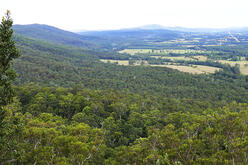Resilience and having empathy were some of the biggest lessons learned by Australian Catholic University education students during a recent trip to Nepal.
A group of 10 ACU early childhood/primary education students from across Australia spent a month in the third world country teaching children in a low socioeconomic area of the province Patan.
The Nepal trip saw the early childhood/primary education students successfully adjust to basic living conditions, including simple accommodation and squatting toilets.
Four early childhood practicum students and six community engagement education students supported local Nepalese teachers and engaged in cultural exchanges. The experience was part of a trial among the young teaching students, who were supported with the Columbo Plan Scholarship Program, working in collaboration with Challenges Abroad.
ACU early childhood and primary lecturer Dr Andi Salamon, who was the students’ guide in Nepal, described the visit as invaluable.
“Teaching is both deeply rewarding and challenging work,” Dr Salamon said. “But the high attrition rate tells us that teachers need a great deal of resilience. This is especially so given the conditions many early years teachers face when they enter the field.
“ACU also believes it’s vital that teachers have empathy and do not negatively judge the children they teach, whose backgrounds may be very different from their own. It was a really good chance for them to ‘check their privilege.'”
ACU Bachelor of Education (early childhood/primary) third year student Nicholas Stephens from Sydney agreed that the trip was “invaluable” in developing his professional resilience.
“We were placed under extreme adversity such as being unwell, and communication issues with the children and teachers and lack of classroom resources.
“Working collaboratively we were able to overcome these difficulties and complete our learning goals. The experience has given me confidence to deal with the hurdles that I will come across when I enter the profession that will often be smaller than the ones I faced in Nepal.
“Nepal also allowed me to comprehend what it means to be a global citizen.
“When establishing and maintaining relationships with people from a country so different from your own you begin to understand that we have more in common than you would think and learning the differences can bring you closer together.
“Learning about a different culture allowed me to see the value in knowing how other cultures live and how it can impact the way you live your life and changes your world perspective. Diversity is not a hurdle to overcome as an educator but a valuable gift educators can utilise to open the hearts and minds of the students in their class.”
ACU Bachelor of Education (early childhood/primary) third year student Melanie Evans from Melbourne said, “Working with a group of children who all speak English as an additional language was both challenging and rewarding.”
“Having this opportunity to apply theory to practice really clarified my strengths in this area and required me to practice perseverance and collaboration in order to provide the best opportunities for all.”
Dr Salamon said the ACU students were outside their comfort-zone during the cultural exchange.
“Upon employment, ACU graduates will teach children from very diverse backgrounds,” she said.
“This trip underscored the importance of respecting diversity and highlighted the importance of empathy as teachers work with a range of children from very culturally diverse backgrounds.
“They need to be sensitive to issues that arise when working with children who have complex needs, for example, those affected by domestic violence or substance abuse.”
The ACU education students’ Nepal trip was co-funded by the Federal Government’s New Columbo Plan, which aims to lift knowledge of the Indo Pacific in Australia by supporting Australian undergraduates to study and undertake internships in the region.







